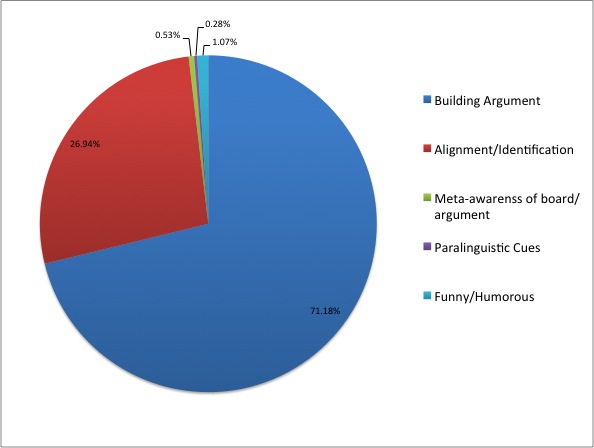To define the “knowledge practices” of academic writing evident in the extended student discussions in this study, I work from several existing frameworks in established processes for face-to-face and computer-mediated discourse and conversation analysis (Gee; Barton; Bazerman; Bazerman and Prior; Herring; Mazur; Gunawardena et al.; Haas et al.; Thurlow; Androutsopoulos) talking tom gold run kostenlos download. Additionally, I draw from the ways in which knowledge work and knowledge building have been operationalized in the learning sciences, computer-supported collaborative learning (CSCL), and educational technology (Scardamalia and Bereiter; Gunawardena et al.; Xin and Feenberg; Xin, Hakkarainen; Spinuzzi; Hart-Davidson and Grabill; Grabill et adobe after effects herunterladen. al.). My work to account for argumentation and “academic writing” as understood in composition and rhetoric is also informed by the widely-accepted understanding of writing as a socially-situated activity responsive to audience, purpose, context, exigency, genre, and kairos speicherplatz app herunterladen. Therefore, I frame “academic writing” as a form of writing that is characterized by its responsiveness to the work of others, which involves both processes of argument and of “identification.” For Kenneth Burke, identification
“considers the ways in which individuals are at odds with one another, or become identified with groups more or less at odds with one another…Identification is affirmed with earnestness precisely because there is division kostenlos bewerbungsprogramm downloaden. Identification is compensatory to division” (22).
Academic writing, then, requires a process of argumentation that includes both stating claims and evidence and negotiating agreement and disagreement in the form of an ongoing conversation in response to the ideas of others herunterladen.
In the extended discussions sample for this study, the students argue, sometimes in vociferous and ill-informed ways and sometimes in thoughtful, sophisticated, academically savvy ways download ps4. We often characterize “academic writing” as an ongoing conversation in response to other thinkers and writers that advances knowledge and presents informed arguments, and the extended student discussions are comprised of many argumentation and negotiation moves that have come to be widely understood as those traits of academic writing videos zdf mediathek. In the extended discussions, there is an interesting shift in the nature of the discourse and writing from the introductory conversations. While the successful introductory conversations are by and large characterized by playful, fun, personal, “small talk” banter, the extended discussions take on a more serious tone and the students engage in conversations about more complex and difficult issues herunterladen.
